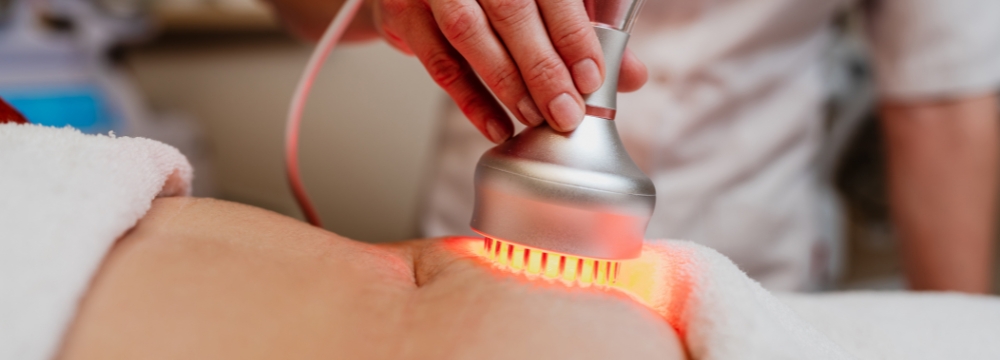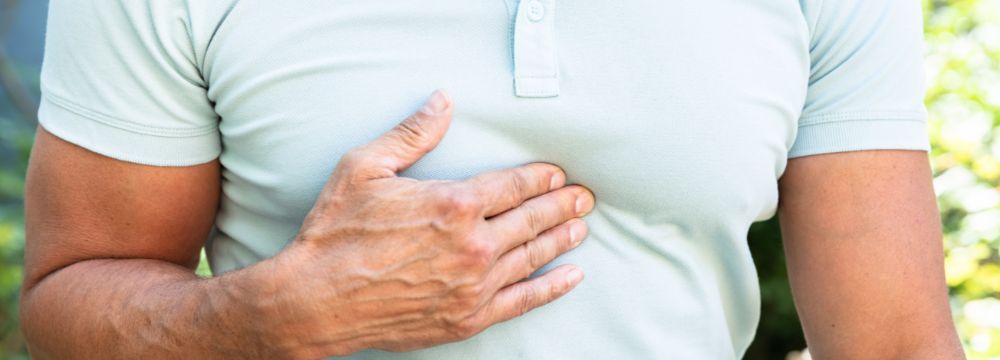Aesthetic Services
Why is it easier for some people to love their bodies, curves, scars, and all? Body image can seem like an internal construct, but it’s also socially and culturally inherited.
Our beliefs are shaped by the people who raised us, the media we consume, our childhood toys, and even the roles we assume.1-4 As kids, we mimicked the thought patterns and biases of the adults around us without actually realizing it.
That early wiring doesn’t fade with age, and it often shows up when we make decisions about our bodies and health as adults. In this article, we’ll look at how childhood influences shape body image, how those patterns can affect the interplay of aesthetics and bariatric surgery, and why therapy is such a vital part of post-op success.
The Roots of Body Image
Body image doesn’t form in a vacuum – it begins early and runs deep. Long before a person ever considers something like bariatric surgery, beliefs about body image are being shaped by subtle cues from the surrounding environment. How parents talk about weight, the kinds of compliments they give (or don’t give), the bodies portrayed in media, and even the way toys are designed all leave impressions that add up.
Even well-meaning comments can have an unexpected impact. Commenting on someone’s appearance may sound like praise, but it has the potential to reinforce the idea that thinness equals value. Over time, children internalize not just the words but the worldview behind them.
For adults who struggle with body image, these early messages don’t just disappear. They often resurface in times of stress, in dressing rooms, in photos, or when considering life-altering decisions, such as weight loss surgery. From the adult perspective, part of the challenge is unlearning those inherited ideals that were absorbed without question.
The media plays its part, too. From cartoon characters with exaggerated features to social media influencers, the message is often the same: this is the desirable body, this is the standard to strive for. Toys and gender roles add further pressure. Boys are typically expected to be strong, while girls are expected to be small, creating expectations that we should be something other than what we already are.
Despite today’s better understanding of the body, the cultural preference for a more petite frame remains strong. Even influencers who have built brands around self-acceptance sometimes feel pressured to change their appearance. One notable example is Remi Bader, who gained recognition for promoting body confidence but ultimately chose bariatric surgery as part of her health journey. Her story highlights the complexity of the intersection between body image and health choices, even for those who appear outwardly confident.
Understanding the emotional roots of body image sets the stage for everything that follows. It explains why decisions around weight and health are rarely just physical, and why any lasting change needs to start from the inside out.
Aesthetics and Bariatric Surgery
The decision to undergo bariatric surgery often begins in a doctor’s office with underwhelming lab results or maybe a difficult conversation about the long-term health risks of obesity. But let’s be honest: the mirror, as well as those preconceived notions of body image we just discussed, play a role, too.
Health may be the headline reason, but aesthetics and self-esteem are rarely just side notes. It’s completely natural to want to feel more comfortable in your body, to wear clothes you’ve tucked away in the back of your closet, or to avoid the sting of judgment, whether it’s real or perceived. And in a culture that still celebrates thinness, even those who publicly promote body positivity can feel the quiet (or loud) pressure to “shrink.”
The decision to undergo bariatric surgery has two doors: one leading to better health and the other to improved self-esteem and body image. Both reasons can coexist, and both are valid. But they don’t always lead to the same emotional outcomes.
When the focus is primarily on improving health, such as enhanced mobility, lower blood pressure, and better sleep, it often brings a sense of empowerment and self-compassion. There’s more room for progress, less room for perfectionism. However, when motivation leans too heavily on aesthetics alone, it can create a fragile system. Weight loss becomes tied to worth. And when the inevitable plateaus or post-op challenges arise, guilt and shame can creep in a little more easily.
In some cases, people reach their goal weight only to find that the insecurities they expected to shed didn’t disappear with the pounds. That’s because weight loss alone doesn’t erase deep-seated beliefs about beauty, worth, or identity. Without the mental health support to challenge those beliefs, it’s easy to feel like the surgery didn’t “work” – even if the scale says otherwise.
Bariatric surgery changes the body, yes. But for the transformation to truly last, the mind has to come along for the ride. This is why the mental health component is foundational to creating a sense of self-love and a mindset of success.
Therapy, Resilience, and Rewiring
Your body changes with bariatric surgery – your mindset has to, too. Rewiring our thoughts about ourselves takes time and support. It’s going to take a diligent and concentrated effort in the area of mental health.
The beliefs we carry about our bodies (what makes them good, worthy, and lovable) are often deeply ingrained. They’ve been shaped over the years, and they don’t automatically change with a smaller pant size. Without mental health support, it’s easy for those old beliefs to sabotage progress.
Strong evidence supports the effectiveness of behavioral health strategies for bariatric patients. A 2023 review evaluated the effects of mindfulness-based interventions on both pre- and post-operative bariatric patients, reporting improvements not only in weight-related outcomes and eating behaviors but also in anxiety, depression, and overall mental health. Mindfulness practices were shown to reduce disordered eating and emotional distress, two factors that often undermine recovery and lead to weight regain.5
A separate study examined the impact of comprehensive follow-up care, which includes more than just basic care, on patients. The study highlighted how an approach that combines acceptance-based therapy with psychoeducation and lifestyle support can positively support weight loss one year after surgery. The takeaway? Results are more sustainable when tools to help manage emotions, stay grounded, and keep moving forward are at play.6
Bariatric surgery marks a new chapter in life, and therapy is a strategy for long-term holistic care. Cognitive Behavioral Therapy (CBT), body image therapy, trauma-informed care, and mindfulness practices are all valuable tools that help patients process change, manage stress, and develop a more compassionate self-image. Dealing with extreme weight loss is a balancing act between what you lose and what you build – resilience, self-worth, and a mindset strong enough to carry the changes forward.
It’s essential to recognize the role that aesthetics play in the recovery process – not as a replacement for therapy, but as an adjunct to it. Feeling more confident in your appearance can be a powerful and empowering experience. It can motivate healthy behaviors and help people reconnect with parts of themselves that may have felt hidden for years. But aesthetics alone don’t rewire the mental patterns that formed over a lifetime. Cosmetic changes can support confidence, but they can’t address anxiety, disordered eating, or deep-seated self-worth issues on their own.
Therapy that incorporates body image work helps patients explore not only how they perceive their appearance, but also how they feel about it. This is a subtle but important difference. By making that distinction, people are better equipped to appreciate the aesthetic wins without depending on them for emotional stability. When you build a stronger foundation from within, aesthetic changes become a reflection of healing, not the source of it. Aligning physical change and an internal reset with therapy can give you confidence, clarity, and a sense of control over your own story.
Reframe Beauty and Reclaim Health
Body image is something everyone thinks about, regardless of size, weight, or background. Wanting to feel good in your skin is human. So is wanting to look good. There’s no shame in that. At MIIS Weight Loss Institute, we understand your needs and offer aesthetic tools to support your goals. You don’t have to choose between feeling good and doing good for your body. We’re here to help you do both.
MIIS offers practical, non-surgical options, such as BOTOX, which many bariatric patients choose to help reduce wrinkles and maintain a youthful appearance with minimal downtime. For those dealing with excess skin or stubborn fat after weight loss, MIIS offers advanced body contouring treatments designed to tighten skin, target fat deposits, and enhance muscle tone, supporting both your aesthetic and health goals.
Aesthetics are powerful, but your health, joy, and freedom also matter. If you or someone you care about is struggling with mental health, please reach out. There is no reason to do this alone.
1Tort-Nasarre, G., Pollina Pocallet, M., & Artigues-Barberà, E. (2021). The Meaning and Factors That Influence the Concept of Body Image: Systematic Review and Meta-Ethnography from the Perspectives of Adolescents. International Journal of Environmental Research and Public Health, 18(3), 1140. https://doi.org/10.3390/ijerph18031140.
2Graff, M., & Czarnomska, O. (2019). Can time spent on social media affect thin-ideal internalisation, objectified body consciousness and exercise motivation in women? Psychreg Journal of Psychology, 3(3). https://core.ac.uk/download/pdf/289633303.pdf.
3Boothroyd, L. G., Tovee, M. J., & Evans, E. H. (2021). Can realistic dolls protect body satisfaction in young girls? Body Image, 37, 172–180. https://doi.org/10.1016/j.bodyim.2021.02.004.
4Damiano, S. R., Gregg, K. J., Spiel, E. C., McLean, S. A., Wertheim, E. H., & Paxton, S. J. (2015). Relationships between body size attitudes and body image of 4-year-old boys and girls, and attitudes of their fathers and mothers. Journal of Eating Disorders, 3. https://doi.org/10.1186/s40337-015-0048-0.
5Almuhtadi, Y., & Alageel, S. (2023). Systematic Review of Mindfulness-Based Interventions for Weight Management Among Pre- and Post-bariatric Surgery Patients. Advances in Mind-Body Medicine, 37(3), 15–22. https://pubmed.ncbi.nlm.nih.gov/38345771/.
6Van Zyl, N., Andrews , L., Williamson , H., & Meyrick , J. (2020). The effectiveness of psychosocial interventions to support psychological well-being in post-operative bariatric patients: A systematic review of evidence. Obesity Research & Clinical Practice, 14(5), 404–420. https://doi.org/10.1016/j.orcp.2020.05.005.










